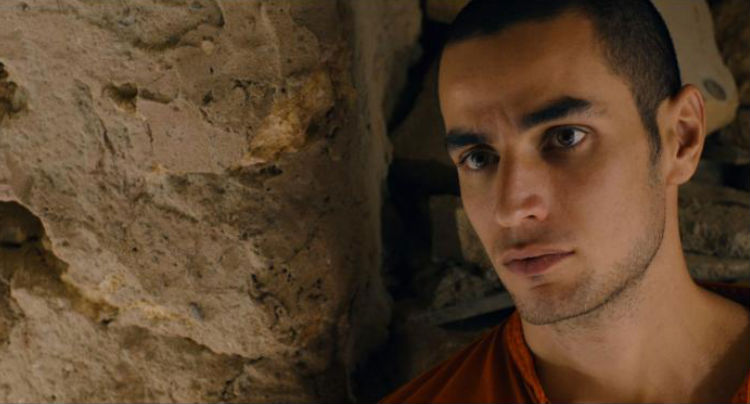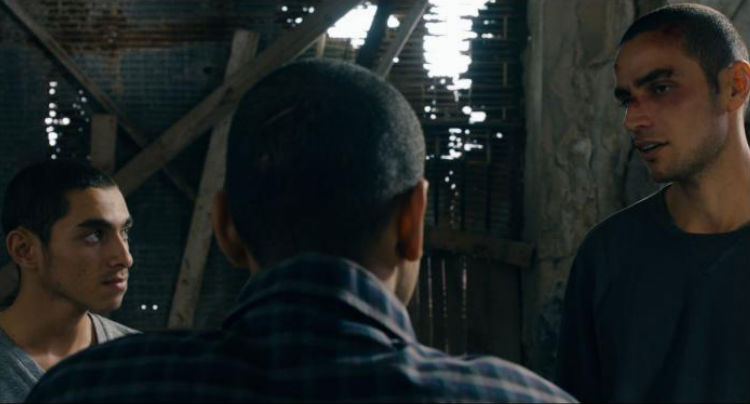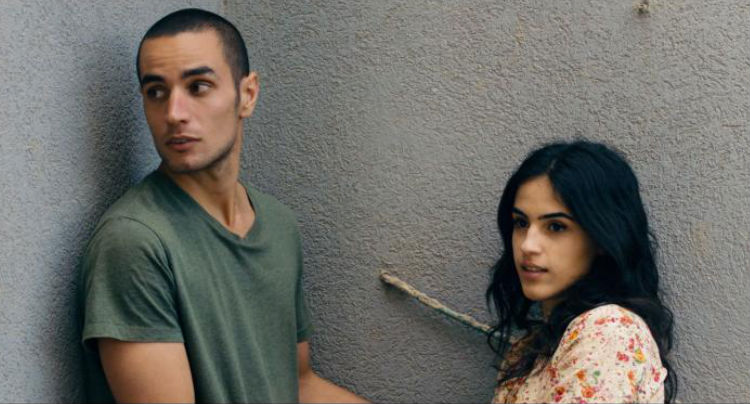
Hany Abu-Assad complements "Paradise Now" with another powerful depiction of the Middle Eastern conflict.

Hany Abu-Assad complements "Paradise Now" with another powerful depiction of the Middle Eastern conflict.
A few shades darker than your average thriller, writer-director Hany Abu-Assad’s Omar, a nominee for the 2014 Oscar for Best Foreign Language Film, explores the psychological trauma endured by the eponymous Palestinian twentysomething (Adam Bakri) and his childhood friends Amjad (Samer Bisharat) and Tarek (Eyad Hourani) as they struggle to survive in the violently, psychologically oppressive climate of Israeli-occupied Palestine. Though narratively uninspired and lacking strong performances to lead us through the tale, Abu-Assad’s pensive examination of the toxic environment in the Middle East is as riveting as it was in his lauded suicide bomber drama Paradise Now.
Omar is a brazen, handsome young man with a ferocious will; he scales the twenty foot wall standing between him and Tarek’s house with ease, only to be met at the top by Israeli gunfire, which grazes, but doesn’t phase him. He’s on his way to meet with Amjad and Tarek for their regular “freedom fighter” training, which includes sniper rifle target practice and planning an attack on an Israeli army base over cups of tea. Serving them the tea is Tarek’s beautiful sister Nadia (Leem Lubany), who slips Omar a love note on his saucer as they play eyes. (Amjad’s clearly interested in Nadia too, though his tiny frame suggests he shouldn’t be serious competition for Omar.)

The trio carries out their covert assault at night, and they successfully pick off an Israeli soldier from atop afar (Amjad pulls the trigger). The next day, Omar is caught (following a conventionally choreographed foot chase) and imprisoned by the Israelis and forced to choose between a lifetime in prison and freedom, providing he brings them Tarek (who they believe shot the soldier) on a silver platter. He’s got a month to deliver his friend to the enemy, and the rest of the film follows Omar as he scrambles to placate the suspicions of his people (why was he released so quickly?), win Nadia’s hand in marriage, smoke out the real rat in his inner circle, and keep himself out of prison. It’s an impossible juggling act, but Omar’s nimble of foot and wit and driven by the hope of a future with Nadia.
Doom and danger dominate Omar’s life, as his role in the Palestinian cause takes precedence over his love for Nadia whether he likes it or not. Tarek will only agree to endorse he and Nadia’s marriage after they carry out an ambush on the Israelis. Omar obliges. The ambush is botched (this is surely the work of the rat), and the film rinse-and-repeats–Omar is caught, sent to prison, and set free again, gifted with one last shot at retrieving Tarek by prison warden Rami (Waleed Zuaiter), who we can sense is taking a liking to Omar. The film ends with a bang, a startling flash of violence that is the film’s most resonant moment.

Like many filmmakers depicting the volatile climate of the Middle East, Abu-Assad is evasive in his moralistic statements about the conflict itself, so as not to incur a backlash from either side. What he instead chooses to focus on is the tragedy that the fog of death will forever lie between these young men and their friendship, hopes, and dreams. Omar’s connection to the Israelis instills mistrust and paranoia in the group, and Amjad carries with him a secret about Nadia that could cause their group to implode.
The cast (with the exception of Zuaiter) is non-professional, and it shows. Bakri and Bisharat in particular wear perpetually blank faces, even in the most intense scenes, and it hurts the film. Zuaiter, Hourani, and Lubani’s efforts are more than respectable, but their parts are secondary. Abu-Assad is a storyteller of symbolism; a shot of an older, depleted Omar struggling desperately to scuttle up the wall from the beginning of the movie, is a powerful visual indication of just how far our hero has fallen.